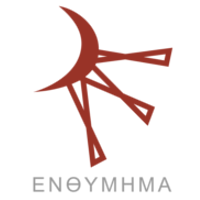Gender Criticism in the Azerbaijani Turkic Folktale of the Book of Dede Korkut
DOI:
https://doi.org/10.54103/2037-2426/16030Parole chiave:
Azerbaijani Folktale, Dede Korkut, Gender Criticism, Gender, CopenhaverAbstract
Folktale is the mirror of human being society that reflects the people’s ways of life. Among the literary genres, the Azerbaijani folktales play a significant role in the Turkic-speaking communities. The Book of Dede Korkut is one of the oldest folktales of Turkic people. Additionally, gender equality is one of the most significant parts of the stories of the Book of Dede Korkut. Furthermore, men and women have prideful roles in their tribe, and the positions of women, are considered equal to men. This study intends to examine gender role models criticism in the Azerbaijani folktale of the Book of Dede Korkut. This research uses Copenhaver’s theoretical frameworks, such as Behavior Characteristics and Source of Power, to criticize gender role models in the different stories of the Book of Dede Korkut. Thus, this research revealed that there was a significant positive relationship between both genders in their society.Downloads
Riferimenti bibliografici
Akçeşme, Ifakat. “Ecocritical Insights into Medieval Epic Romances: A Comparative Study of Le Morte D’Arthur and Dede Korkut Stories.” Akademik Veri Yönetim Sistemi, Cambridge Scholars Publishing, 2018.
Aktan, Mustafa. Türk Edebiyatinda Kadin Divan Edebiyatinda Kadinin Yeri (Önemi, Nicelik Ve Nitelikleri). MA Thesis. Lefkoşa: Yakın Doğu Üniversitesi, 2019.
Basow, Susan A. Gender Stereotypes and Roles. California: Brooks/Cole Publishing Company, 1992.
Behrangi, Samad, and Dehghani, Behrouz. افسانه های آذربایجان [The Legends of Azerbaijan]. Nil, 1996.
Bronner, Simon J. The meaning of folklore. Utah State U, 2007.
Butler, Judith. Gender Trouble: Feminism and the Subversion of Identity. Routledge, 1989.
Catherine Chiaka, Nnadi. “Integrative Values of Folktales: Igbo Folktale Example.” International Journal of Innovative Science and Research Technology, no. 9, 2020, pp. 317–23.
Copenhaver, Bonny Ball. “A Portrayal of Gender and a Description of Gender Roles in Selected American Modern and Postmodern Plays.” PhD’s Dissertation. Johnson City: East Tennessee State U, 2002.
Das, Ritamani. “Psychoanalytical Study of Folktale.” IOSR Journal of Humanities and Social Science, no. 10, 2014, pp. 13-18.
Deger, Zeynep İrem. “Dede Korkut Hikayelerinde Erkek Olmanin Eşiğinde Av/Hunt.” Türük Uluslararası Dil, Edebiyat ve Halkbilimi Araştırmaları Dergisi, no. 17, 2019, pp. 267–79.
Dönmez, Süleyman. “Ddede Korkut Kitabi Bağlamında Eski Türklerdeki Hanim Anlayışı.” Siirt Üniversitesi İlahiyat Fakültesi Dergisi, no. 5.1, 2018, pp. 11–30.
Duran, Erol, and Tufan Bitir. “Increasing Awareness on Dede Korkut and His Stories: An Action Research.” International Electronic Journal of Elementary Education, no. 12.1, 2019, pp. 37–46.
Duran, Hamiye. “Burla Hatun’dan Terken Hatun’a.” Türk Kültürü ve Hacı Bektaş Velî Araştırma Dergisi, no. 32, 2004, pp. 79–89.
Ekici, Metin. “Dede Korkut Kitabı’nda Kadin Tipleri.” 2000.
Estji, Ebrahim, et al. “Comparative study of woman in ‘Dede Korkut’ and ‘Shahnameh’.” Journal of American Science, no. 9(4s), 2013, pp. 2002–6.
Ezilmez, Hüseyin. “Geleneğin Güncellenmesi Bağlamında Bir Karşılaştırma: Kan Turali Hikâyesi Ve Kan Turali Oyunu.” Folklor Akademi Dergisi, no. 2, 2019, pp. 200–13.
Firat, Hatice. “Education in Dede Korkut’s Stories: Qualification of Bravery in Boghach Khan and Uruz.” Educational Research and Reviews, no. 9.23, 2014, pp. 1353–59.
Ibeli, Nneka. “Folktale as Artistic Representation of History: A Study of Selected Igbo Folktales.” Arts and Design Studies, no. 42, 2016, pp. 10–12.
Iloba George, Babajide. “The Multiple Identities of Azerbaijan.” Khazar Journal of Humanities and Social Sciences, 2011, pp.78–89.
Ismayilova, Laman. “Country of Ancient and Rich Folklore Traditions [PHOTO].” AZERNEWS, 8 June 2018, www.azernews.az/culture/102440.html.
Jafarzadeh, Hassan M. نگاهی بر ویژگی های شخصیت های قصه های آذربایجان [A Survey of the Characteristics of Azerbaijani Characters]. Iran, Tehran, Entesharate Andishe New, 2014.
Kaplan, Mehmed. “Dede Korkut kitabında kadın.” Türkiyat Mecmuası, no. 9, 1951, pp. 99–112.
Lewis, Geoffrey. The Book of Dede Korkut. Penguin, 1974.
Lindsey, Linda. Gender Roles: A Sociological Perspective. Routledge, 2015.
Mack, Natasha, et al. Qualitative Research Methods: a Data Collector’s Field Guide. Family Health International, 2005.
Stoller, Robert J. Sex and Gender: the Development of Masculinity and Femininity. Karnac Books, 1984.
Saritaş, Şenay Eray. “Dede Korkut Kitabı’nda Toplumsal Cinsiyet Rolleri Ekseninde Kadınlık Olgusu.” Third Sector Social Economic Review, no. 55.3, 2020, pp. 1949–64.
Uğureli, Ayşe. “Dede Korkut Kitabı’Nda İktidar Ve Toplumsal Cinsiyet İlişkisi Bağlamında Bayındır Han.” Kültür Araştırmaları Dergisi, no. 5, 2020, pp. 221–40.
World Health Organization. “Gender.” 27 Aug. 2018, www.who.int/westernpacific/health-topics/gender-equity-and-human-rights.
Yılmaz, Aysun Ezgi. “Erkekİktidar İlişkisine Halk Bilimsel Bir Bakiş: Dede Korkut’ta “Eril” İn İktidar Çikmazi.” [A Folkloric View over Man-Power Relation: Power Dead-End of Masculine in the Dede Korkut]. Motif Akademi Halkbilimi Dergisi, no. 24, 2018, pp. 240–51.
Yüce, Erkan, and Aslı Özlem Tarakçıoğlu. “A Comparative Study of The Common Characteristics of National Heroes in Folk Tales: Köroğlu, Kalevipoeg and Daedalus.” Bilim ve Gençlik Dergisi, no. 1, 2013, pp. 59–69.
Dowloads
Pubblicato
Versioni
- 15-07-2022 (2)
- 15-07-2022 (1)
Come citare
Fascicolo
Sezione
Licenza
Copyright (c) 2022 Ramin Mohammadi, Seyed Majid Alavi Shooshtari

Questo lavoro è fornito con la licenza Creative Commons Attribuzione 4.0 Internazionale.

Except where otherwise noted, the content of this site is licensed under a Creative Commons Attribution 4.0 Unported License.
Accettato 2022-06-24
Pubblicato 2022-07-15





